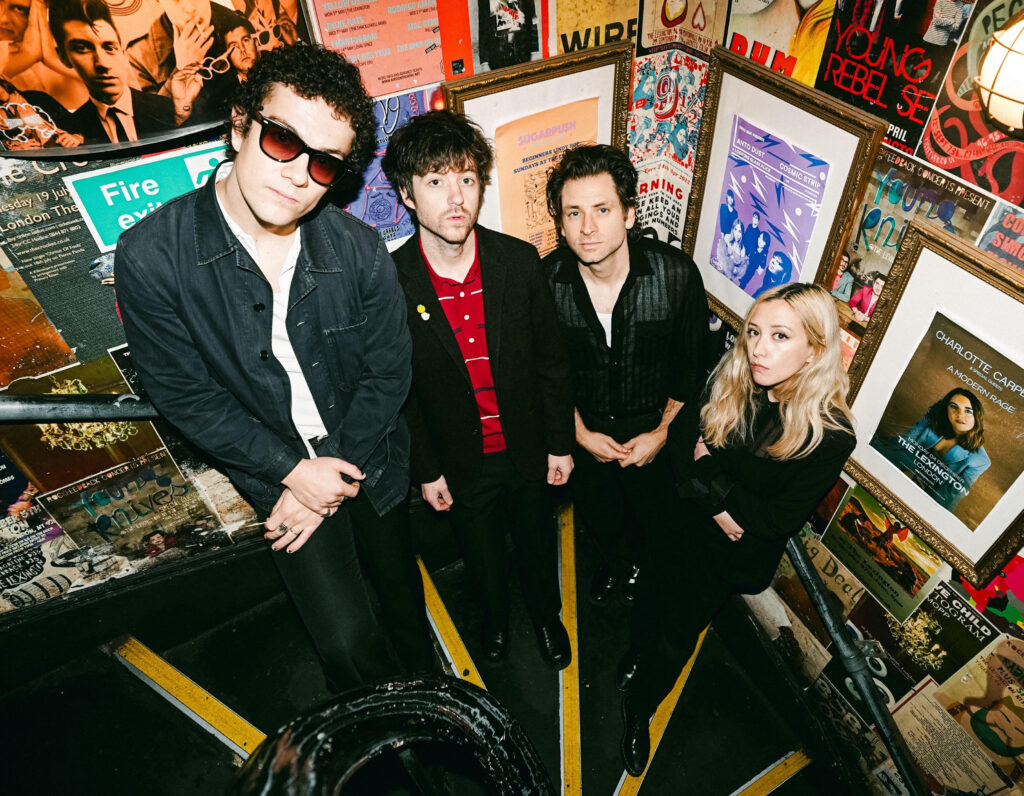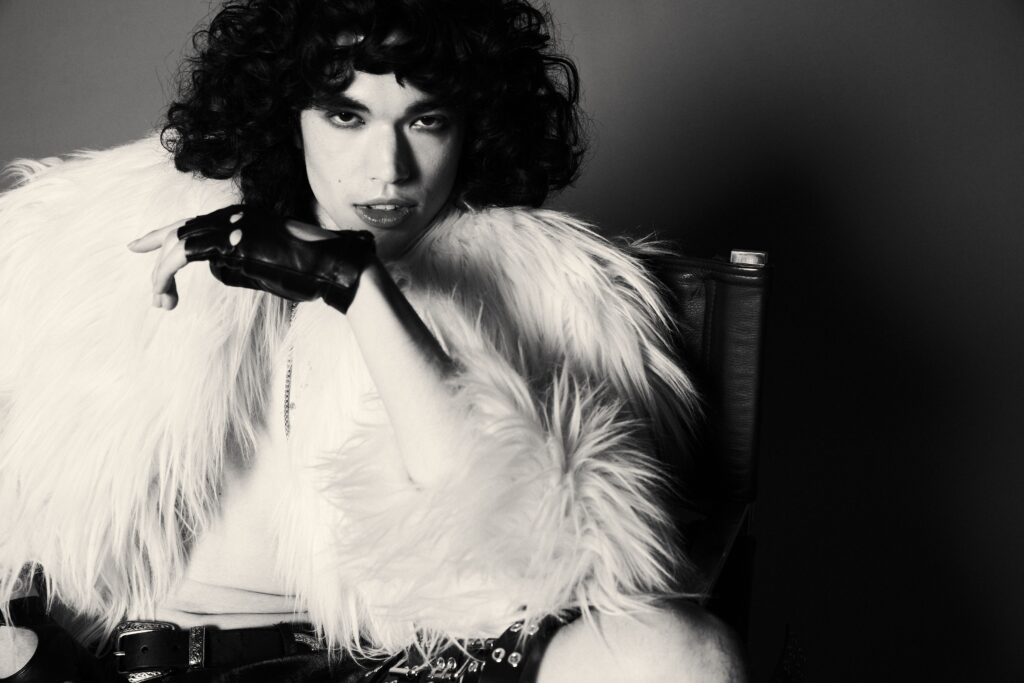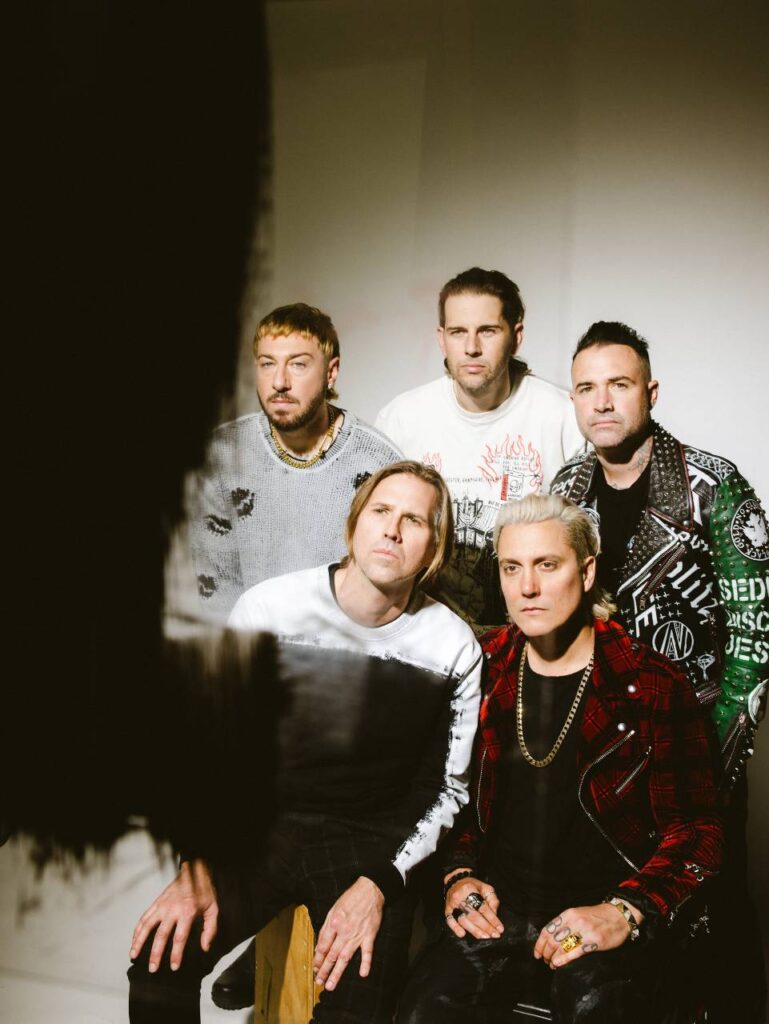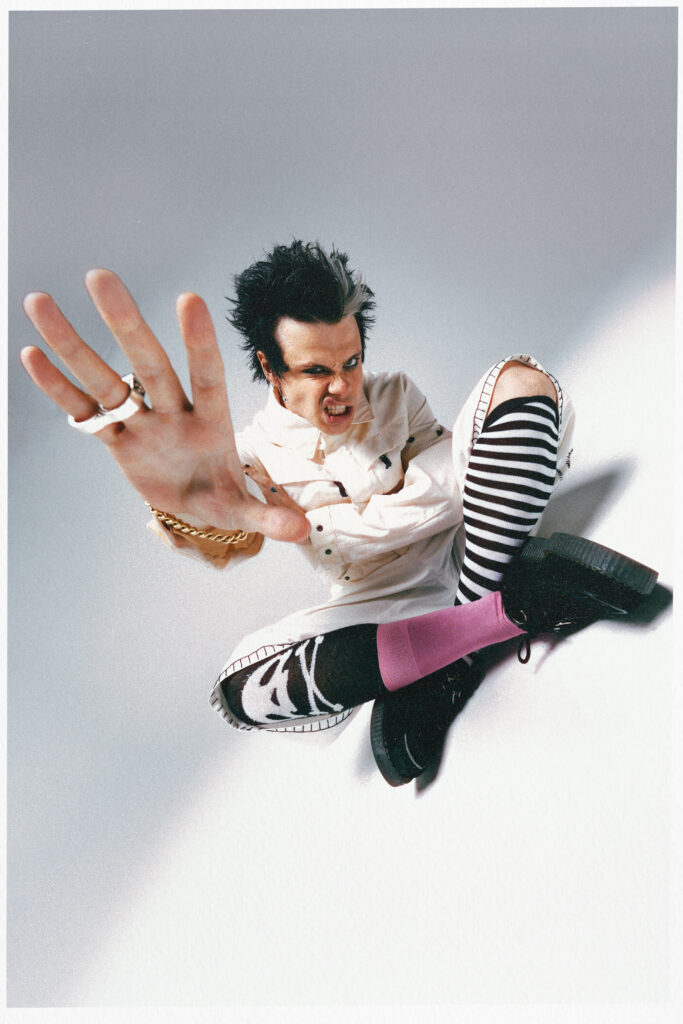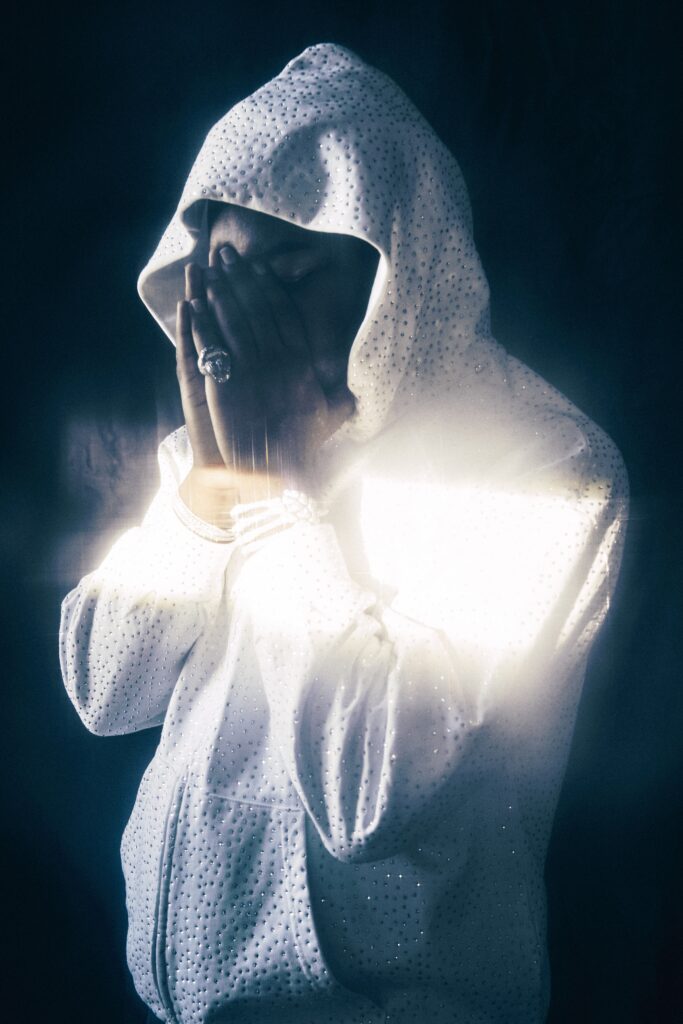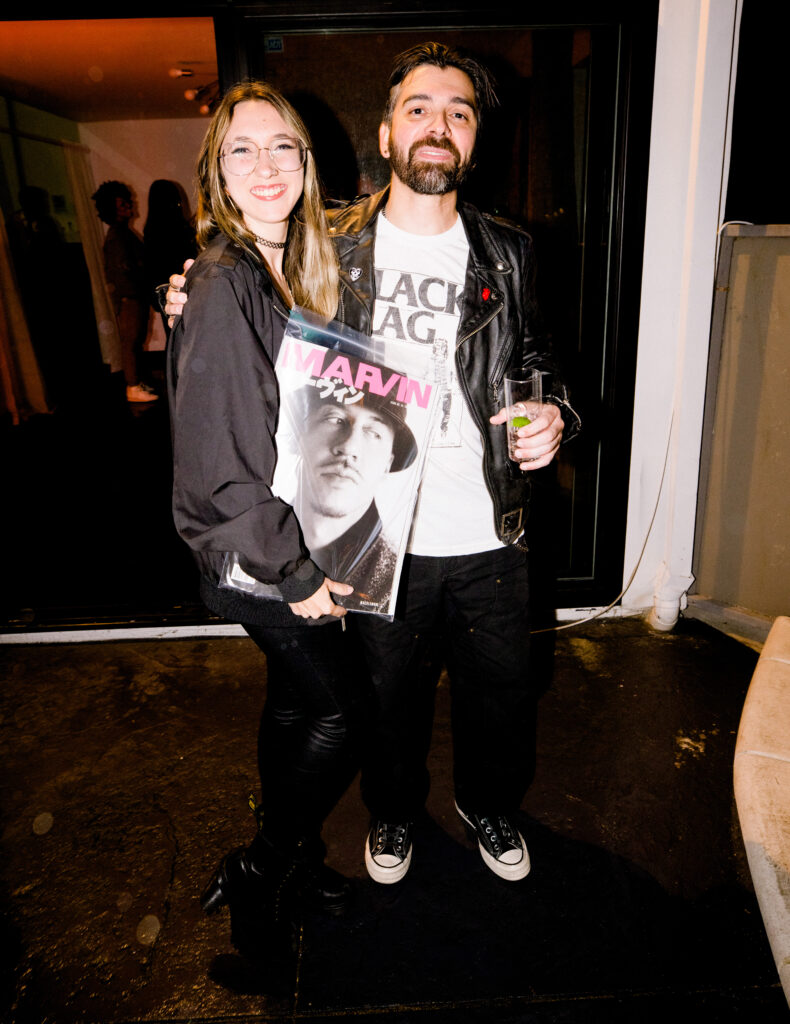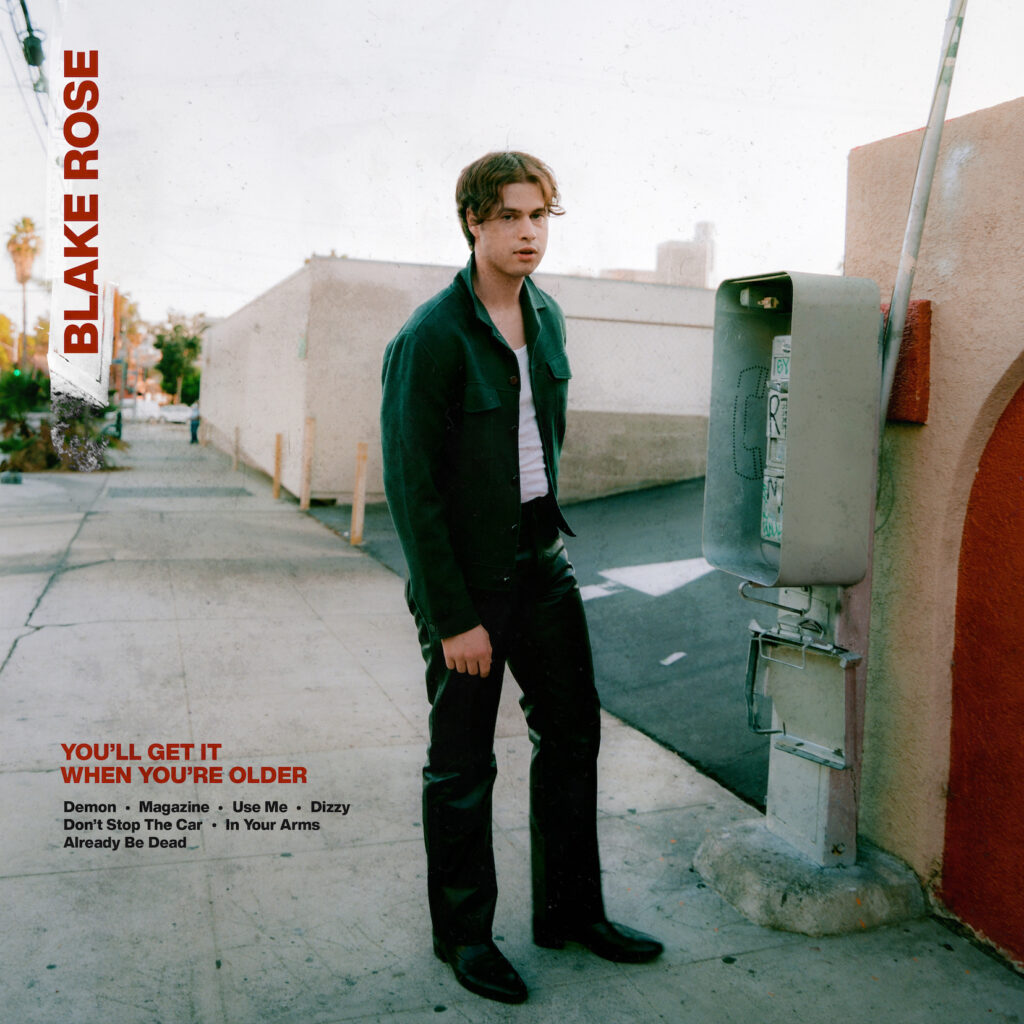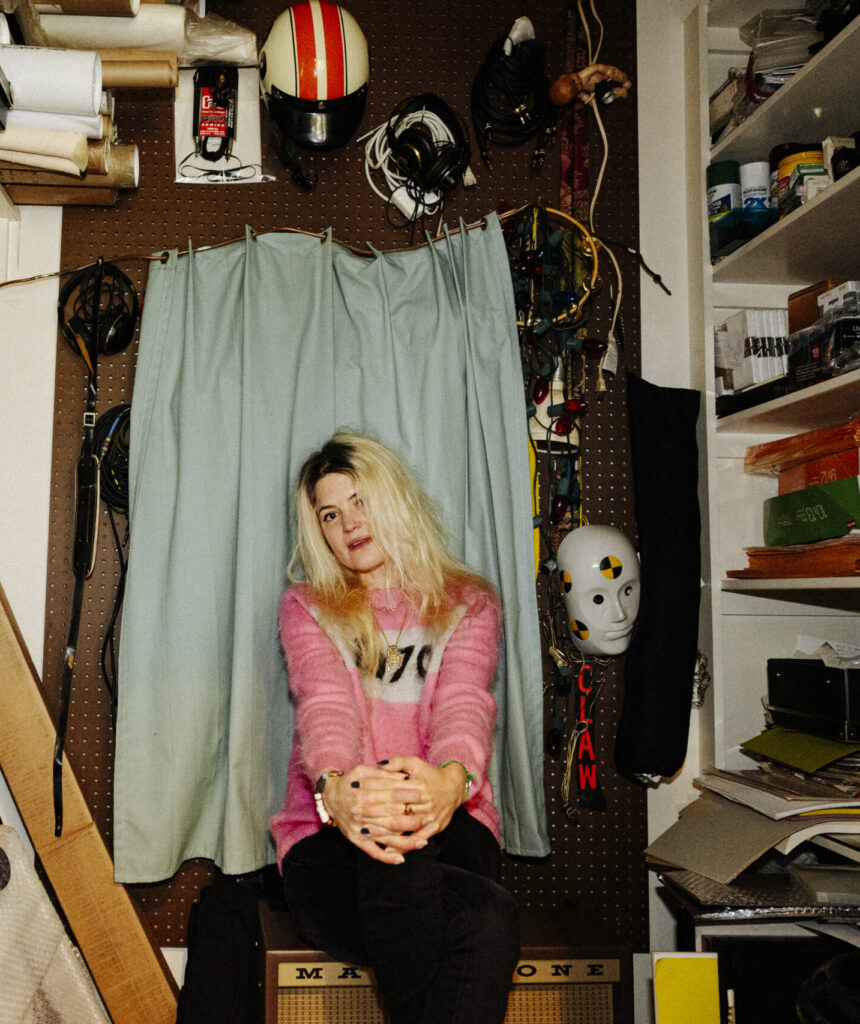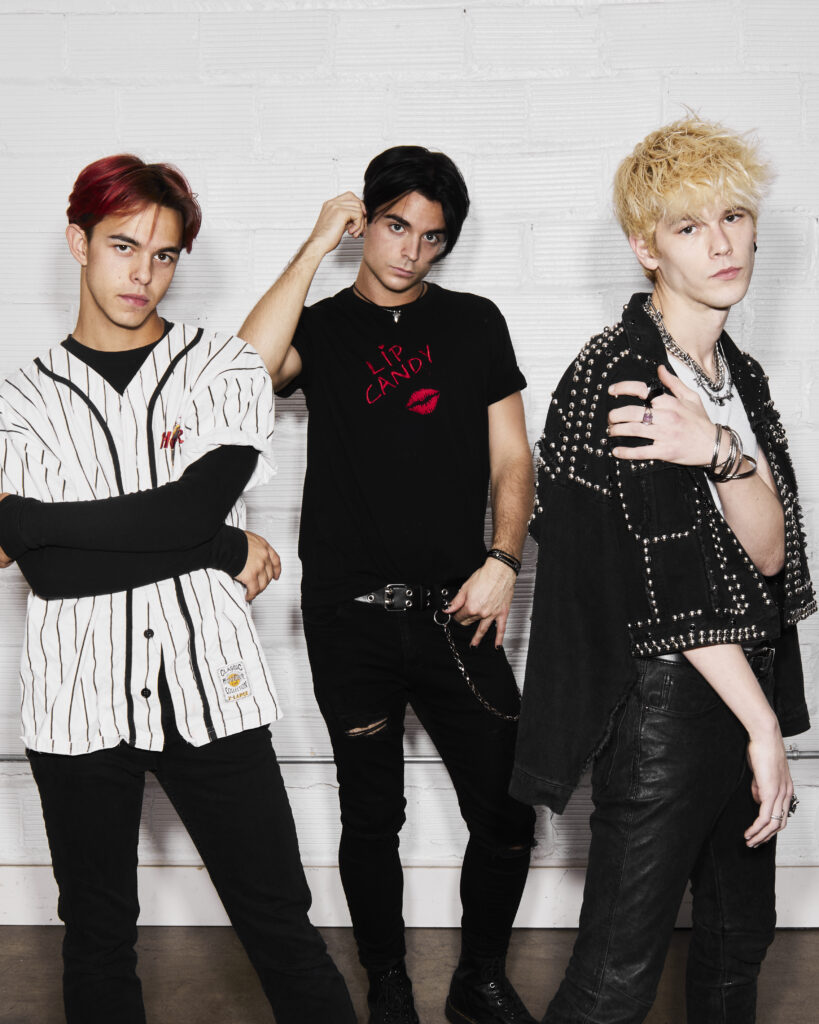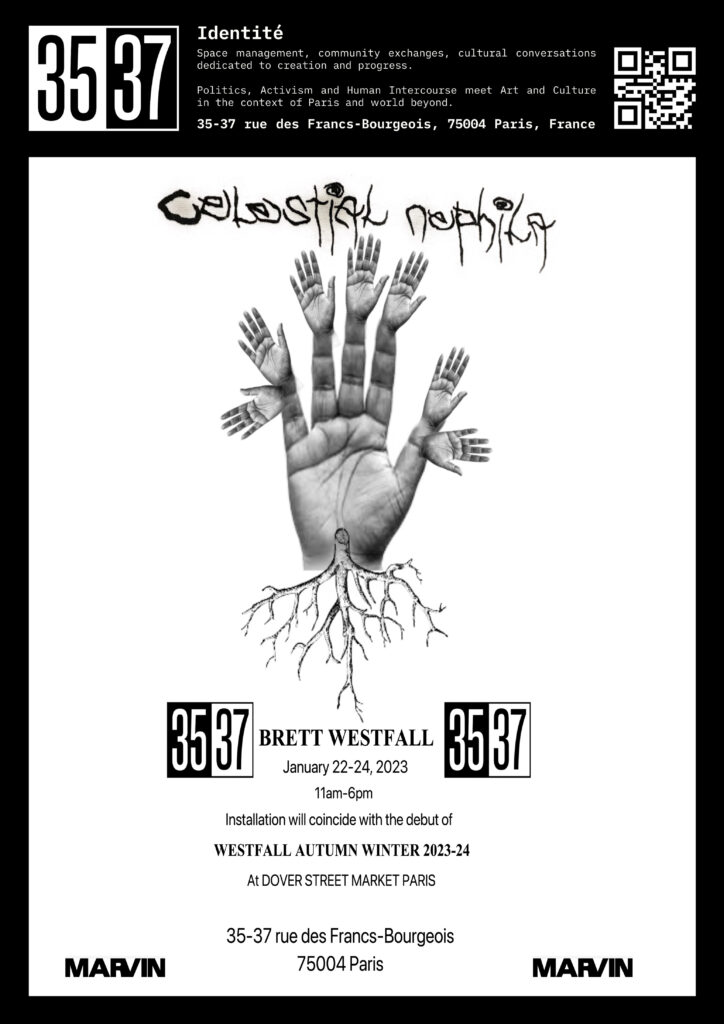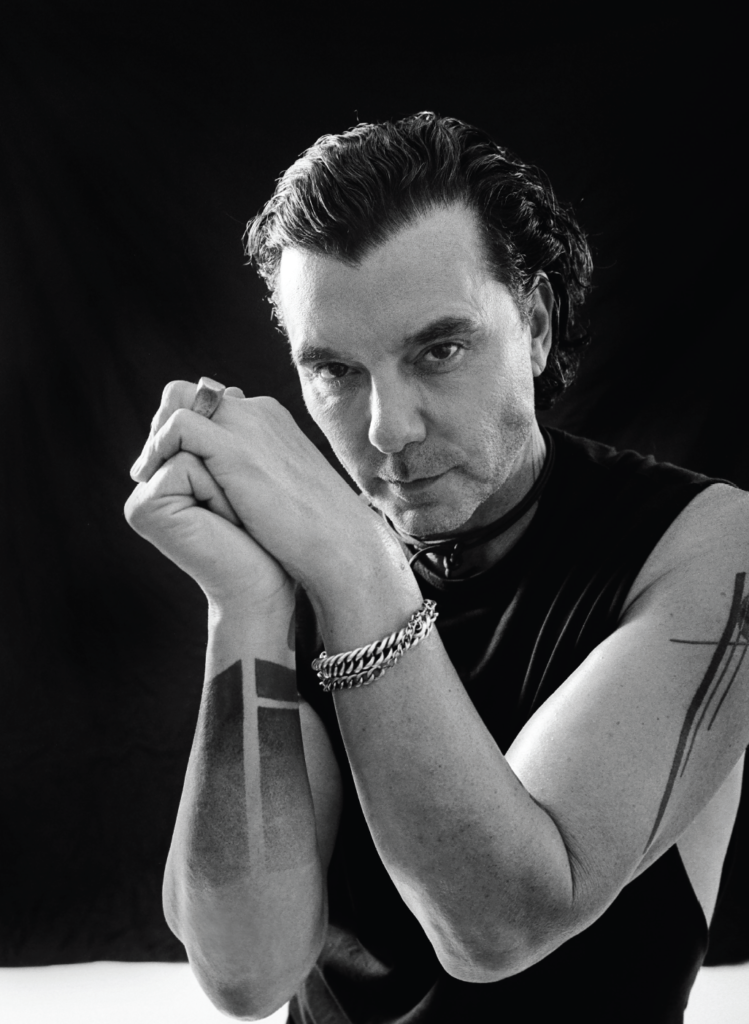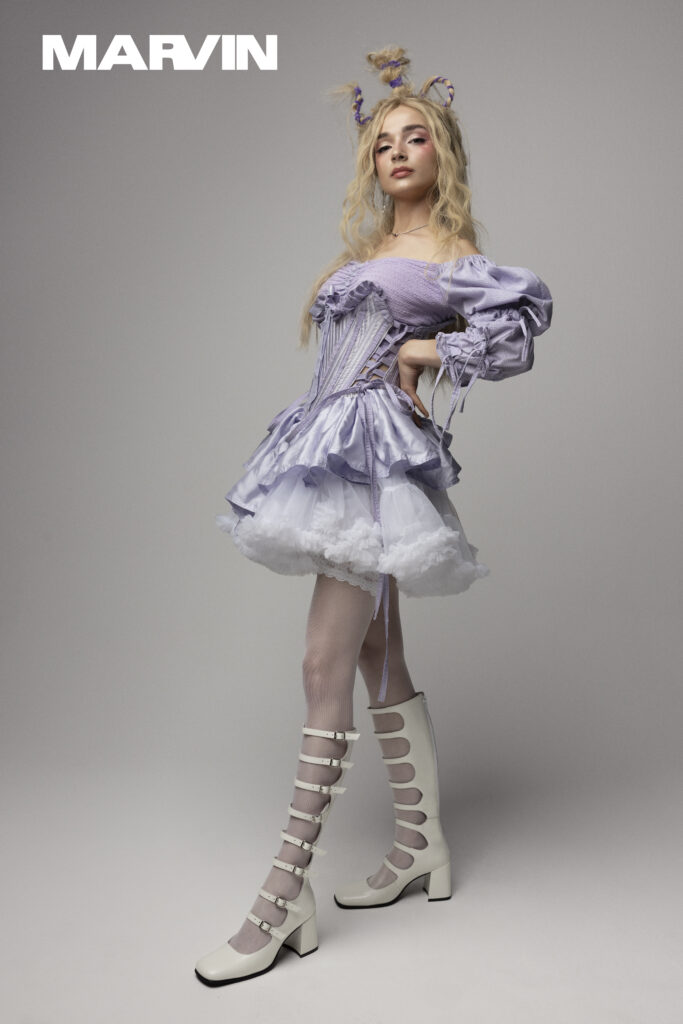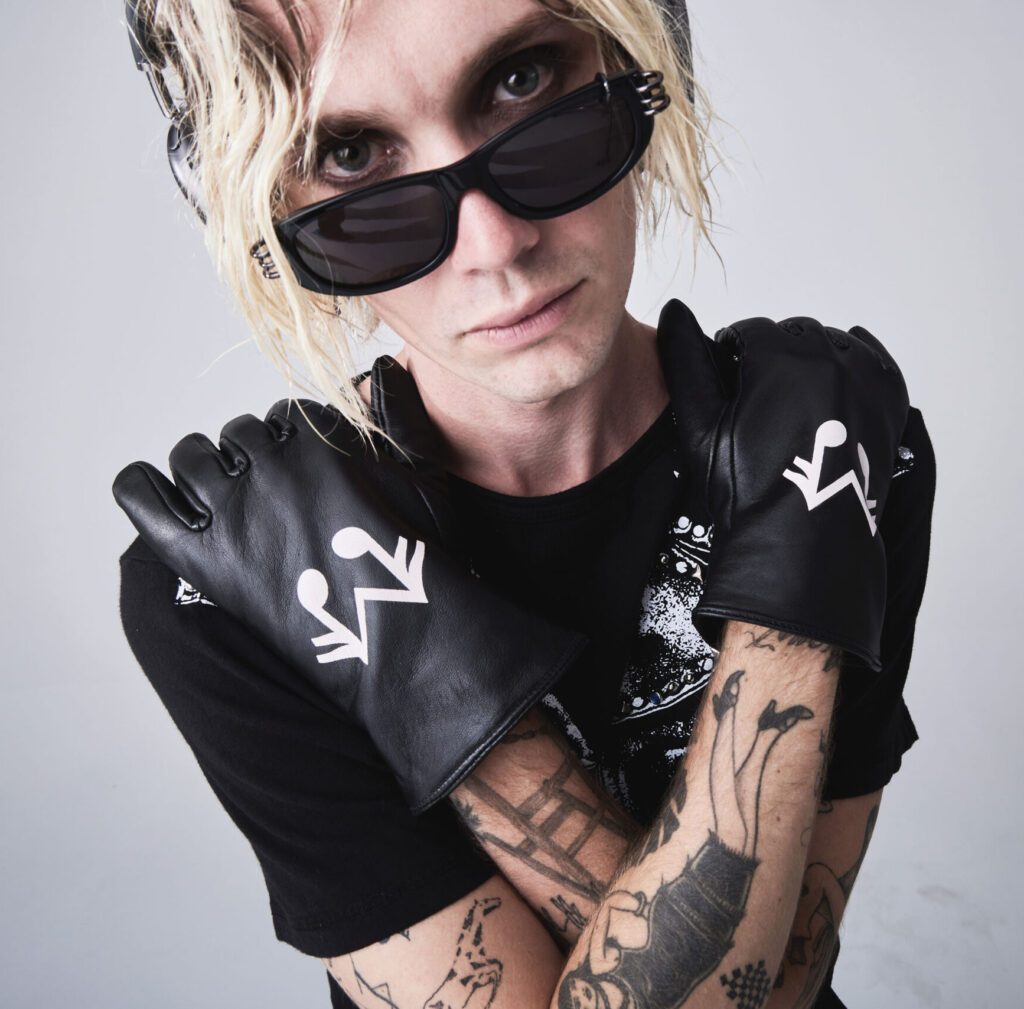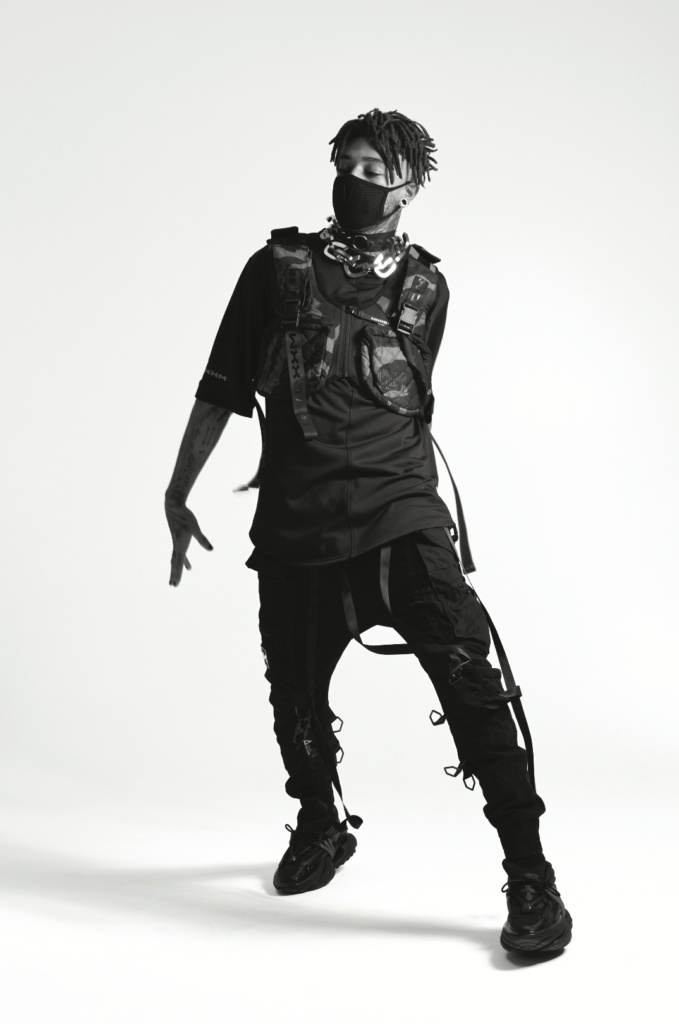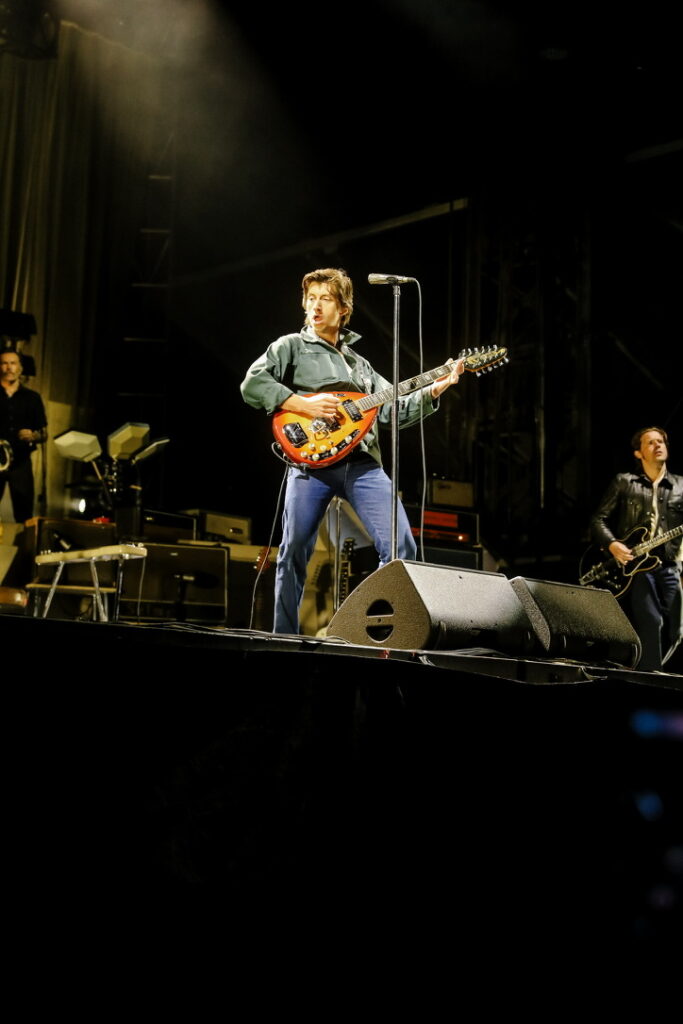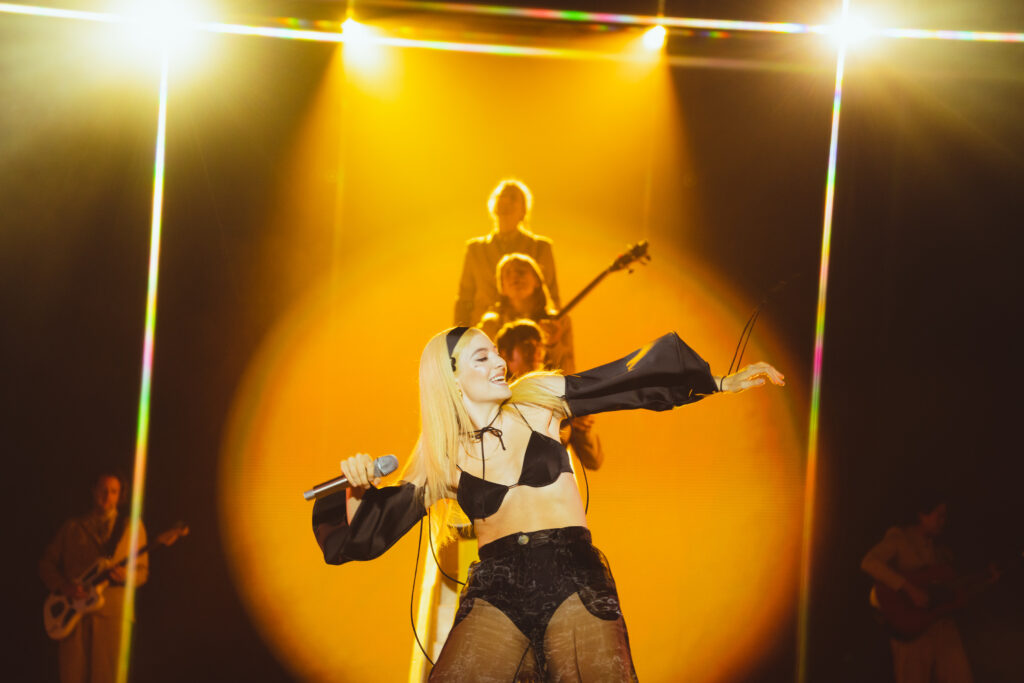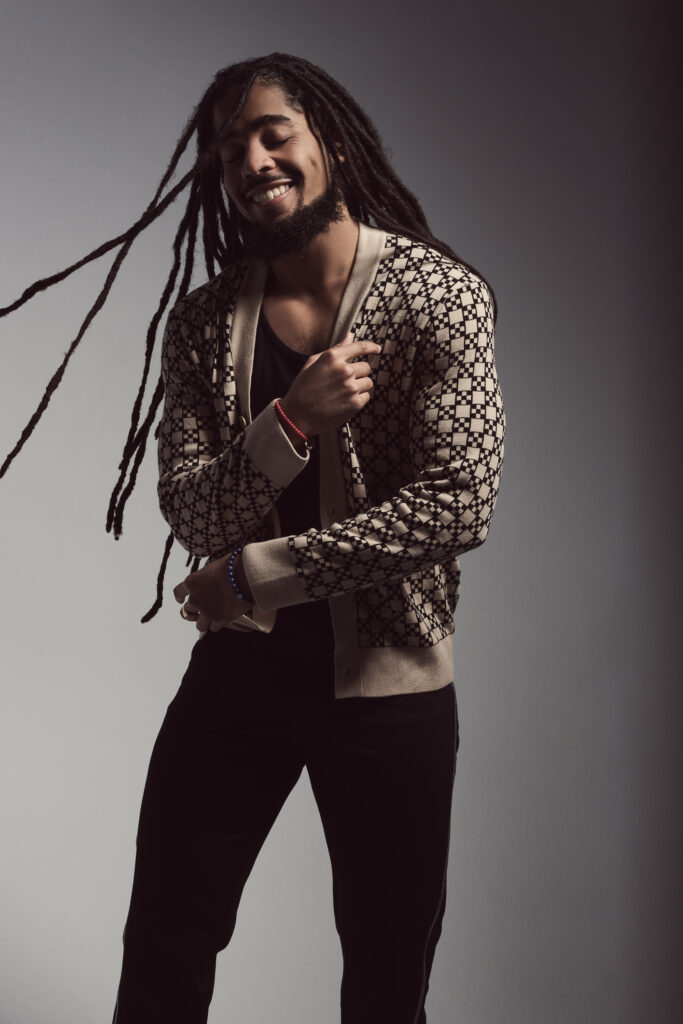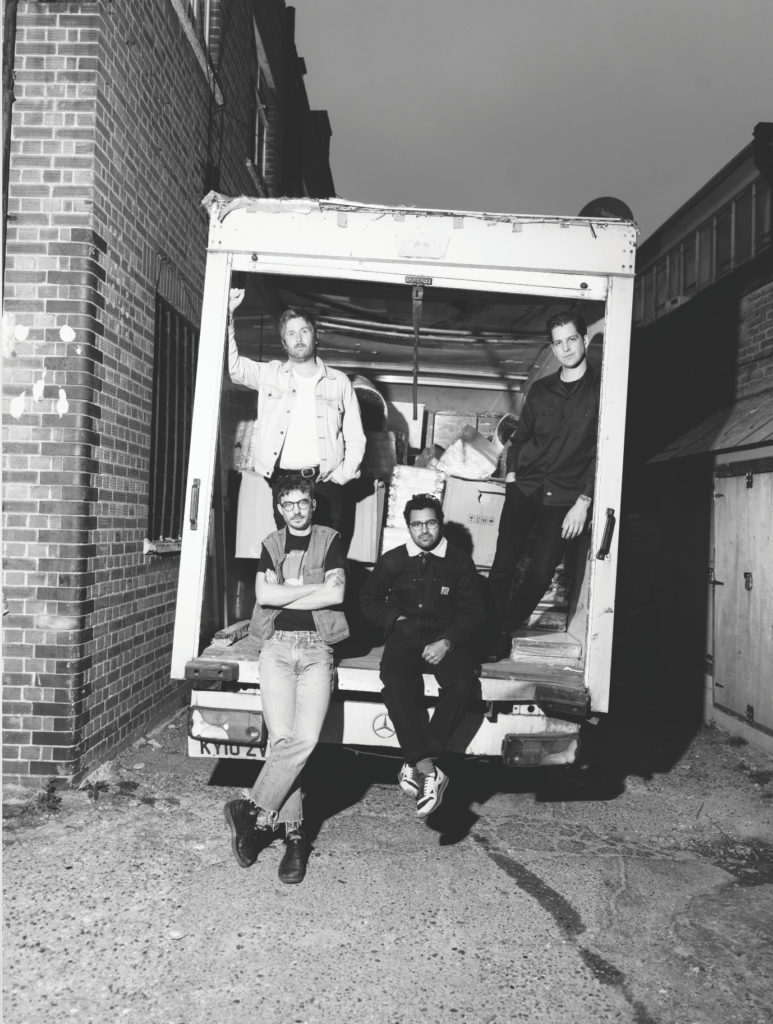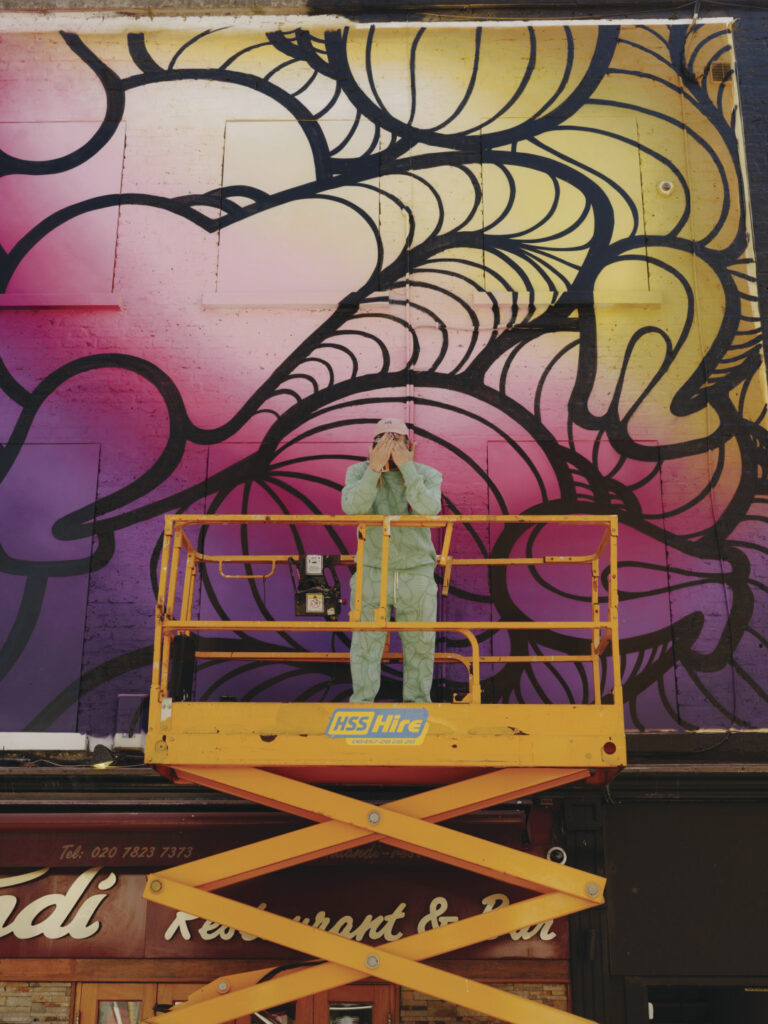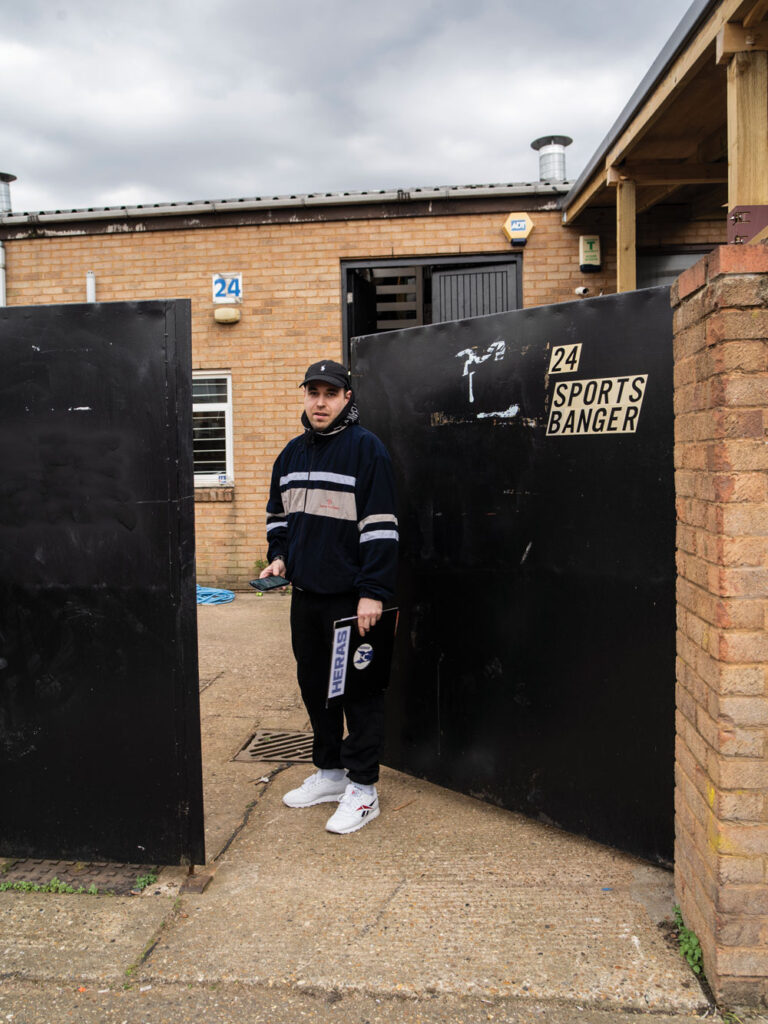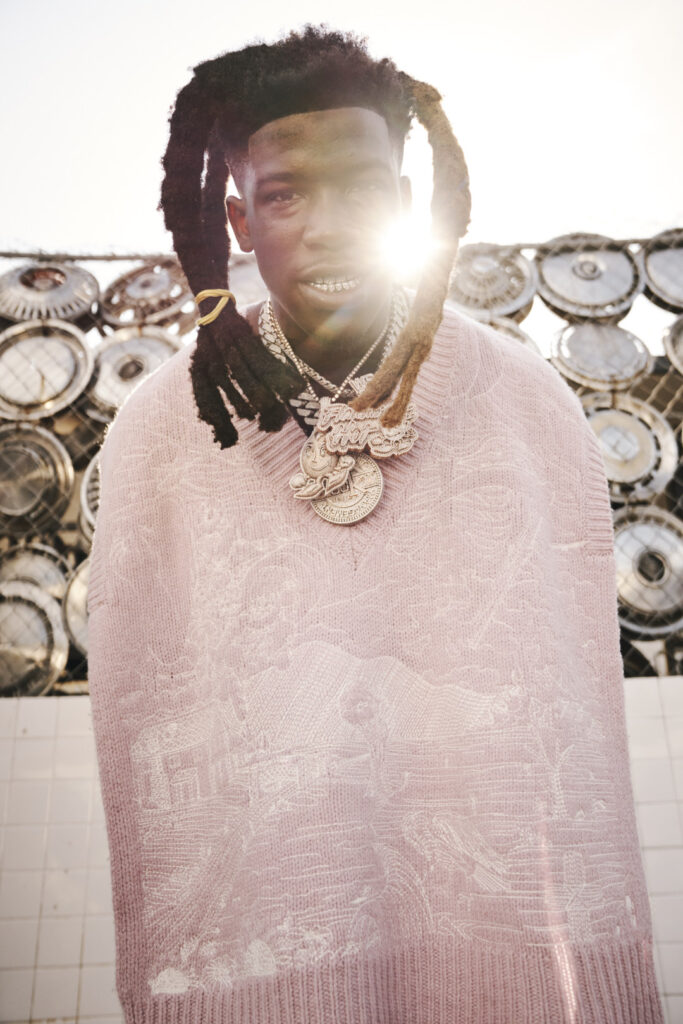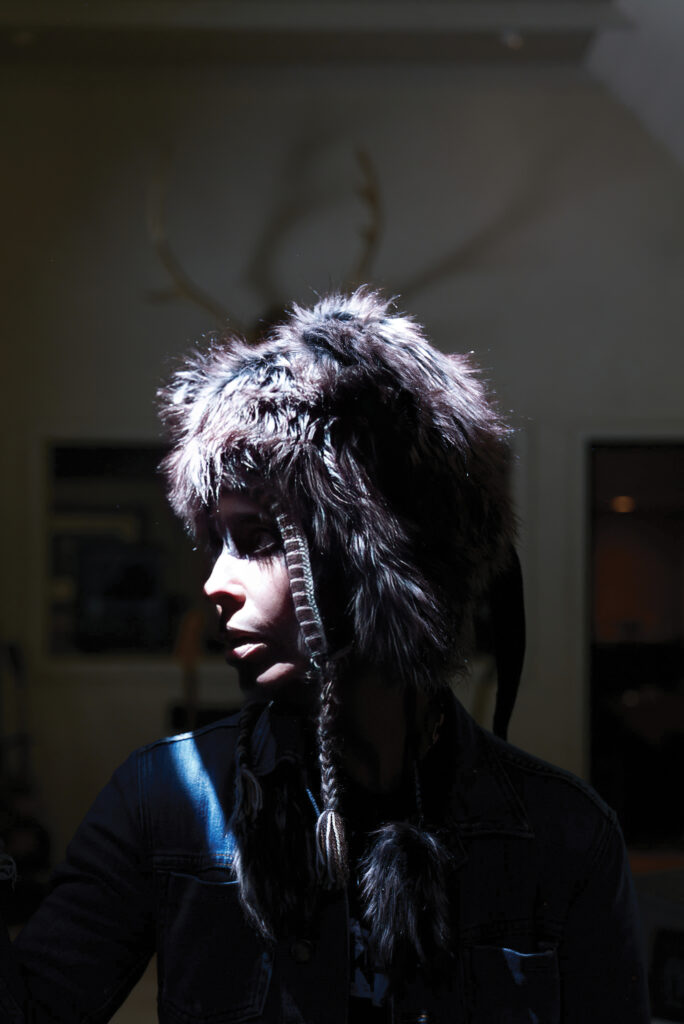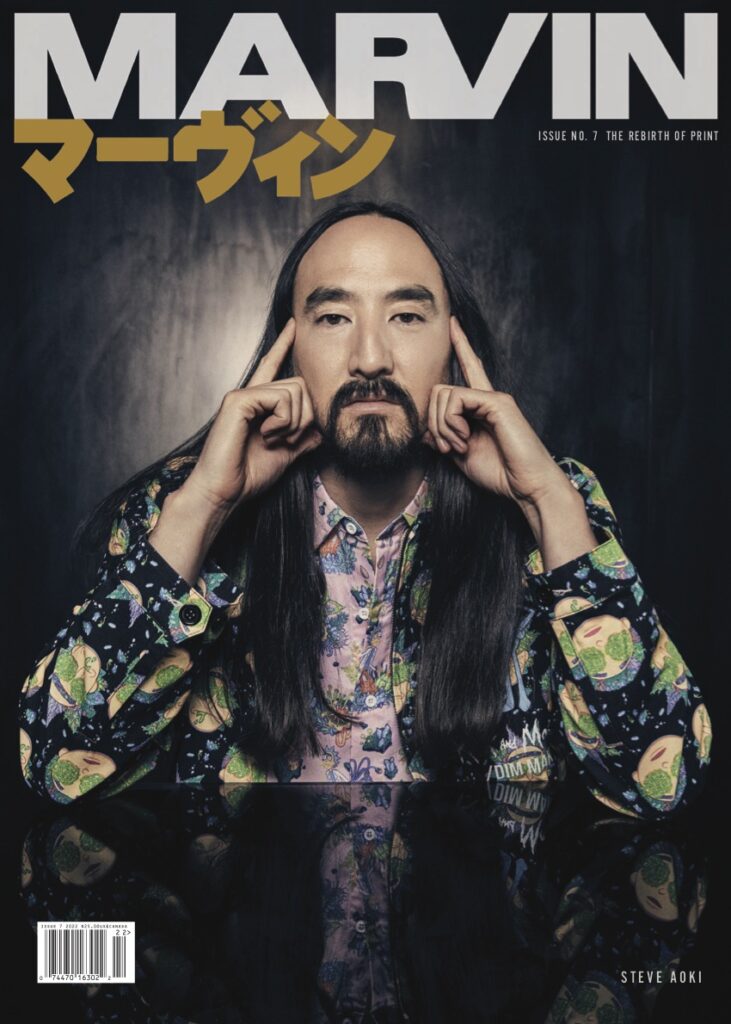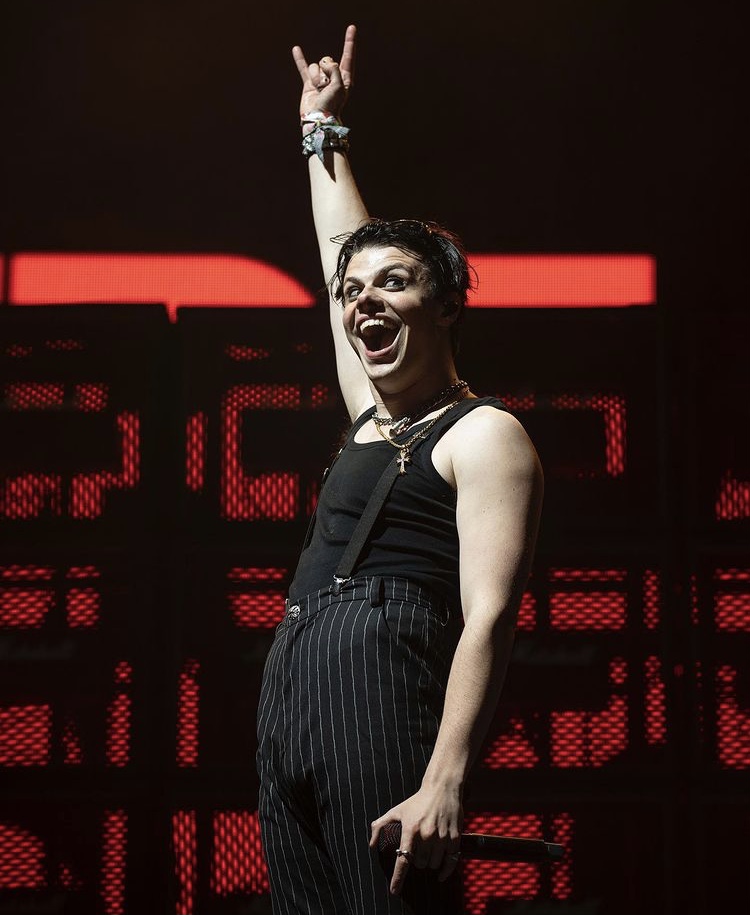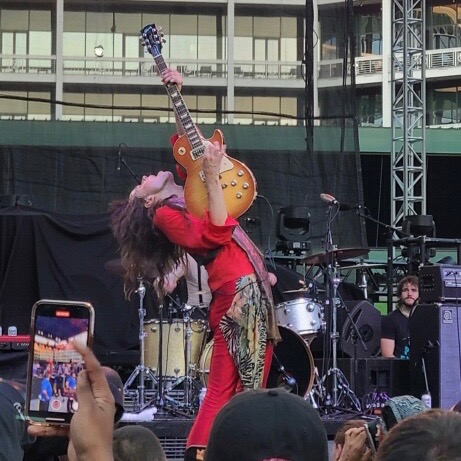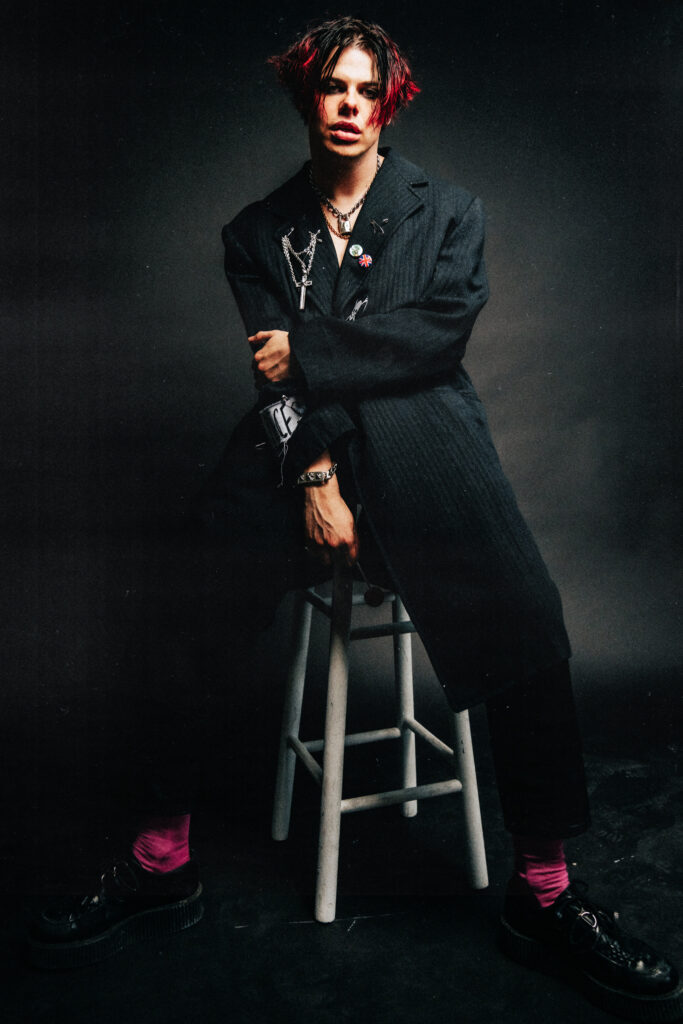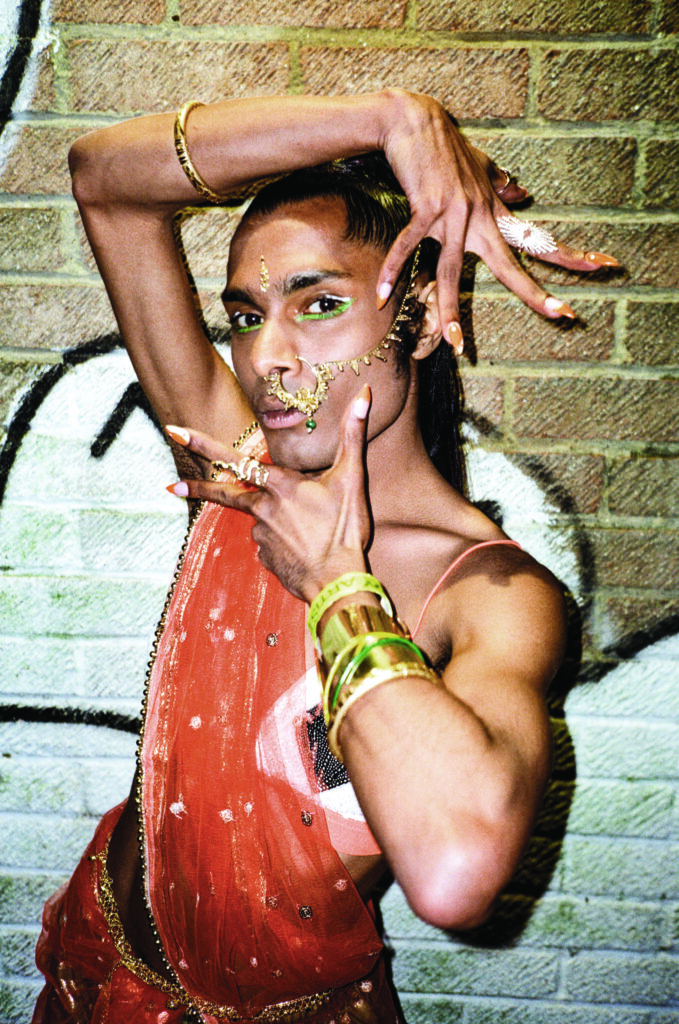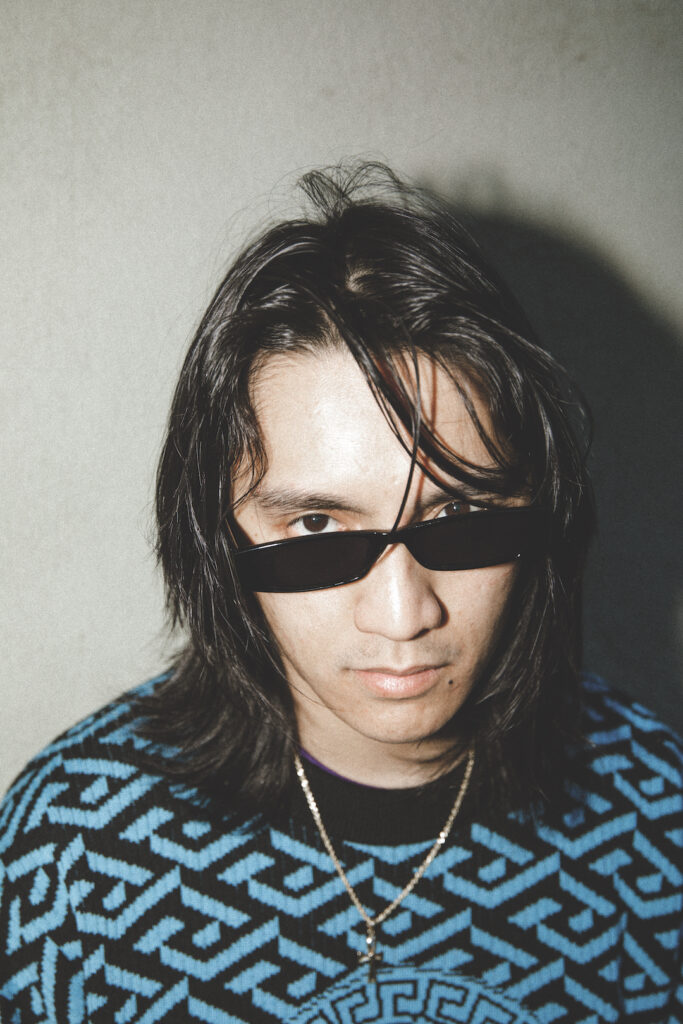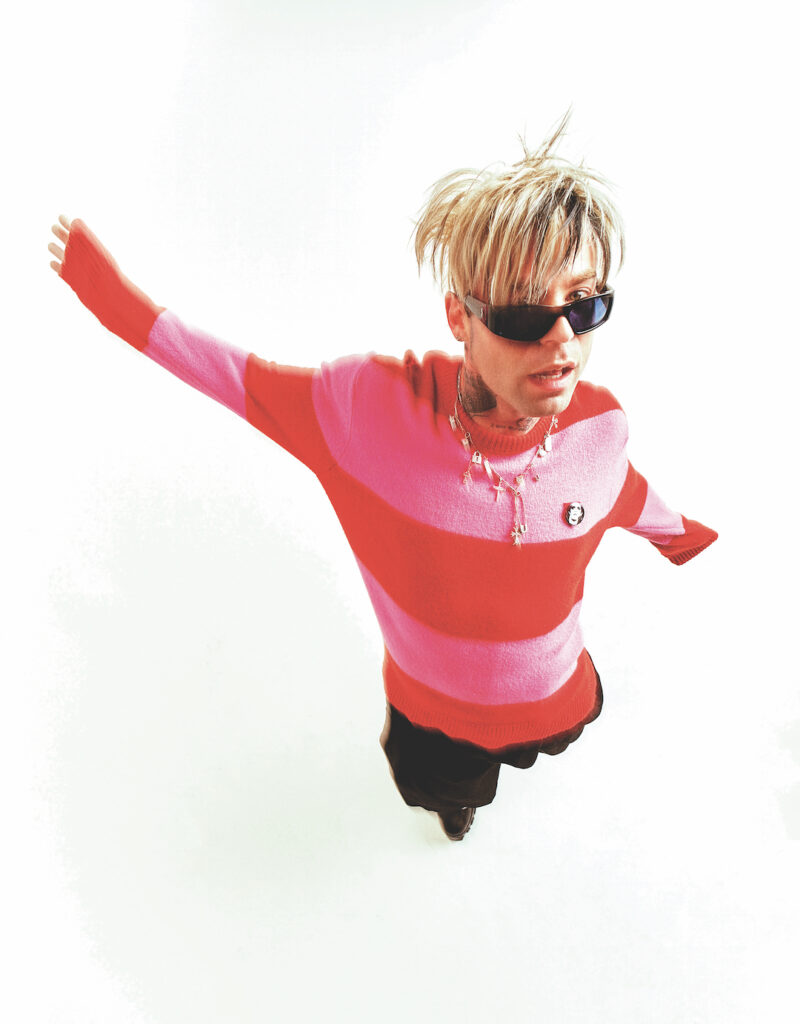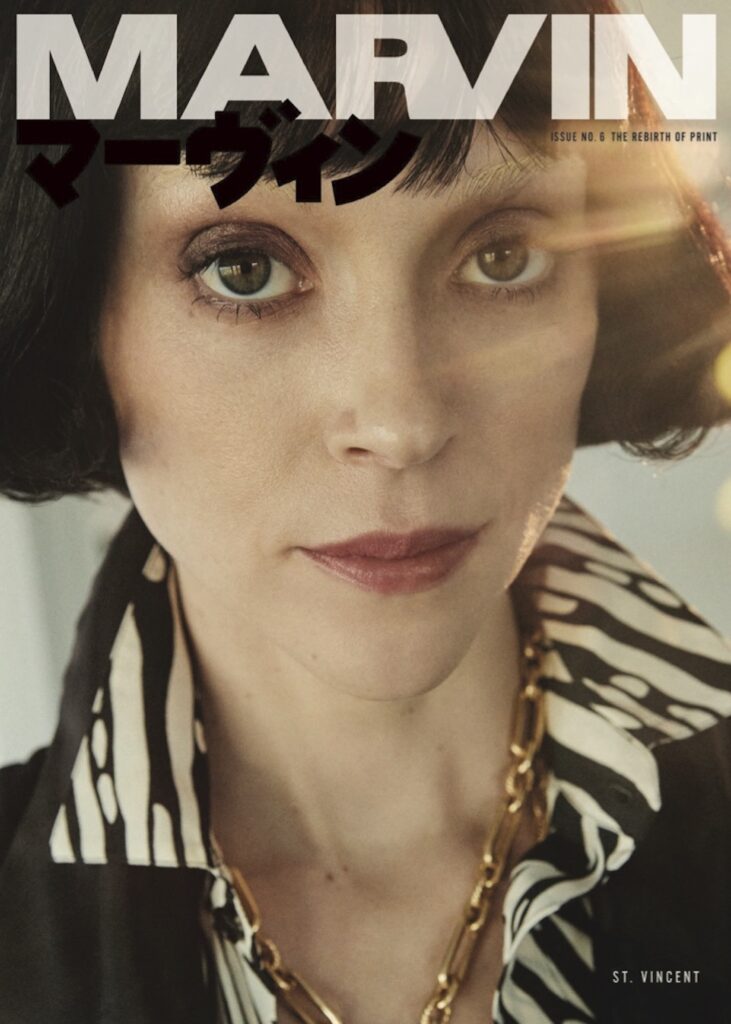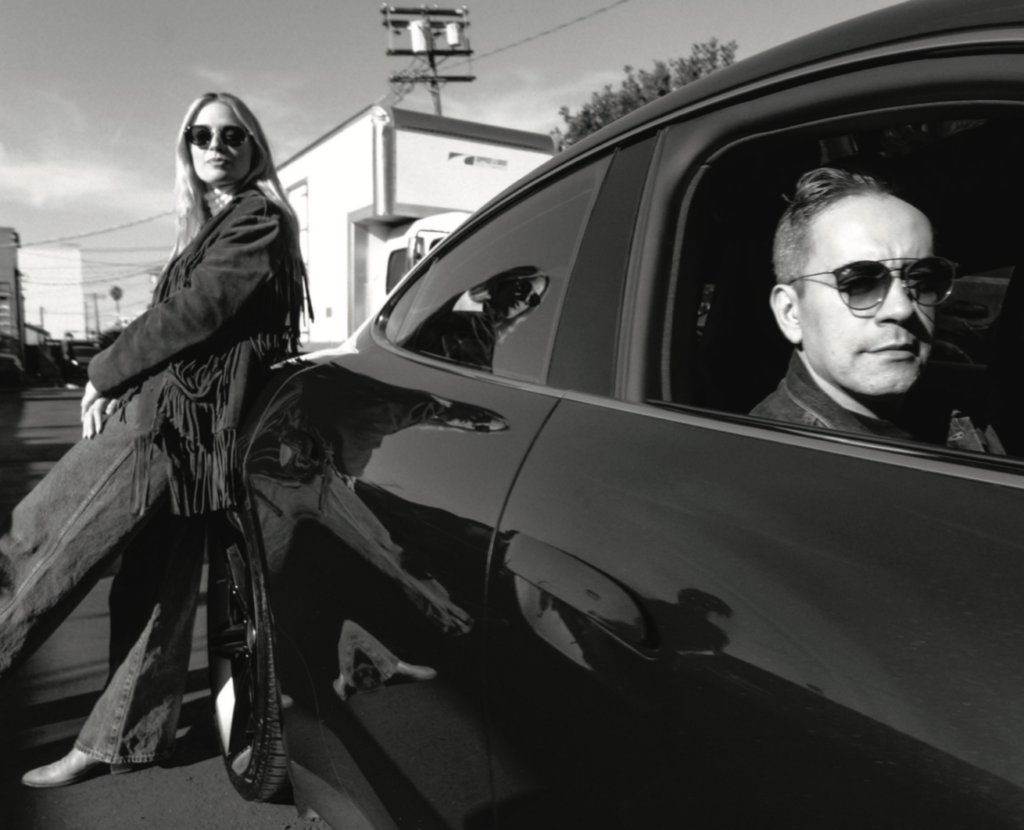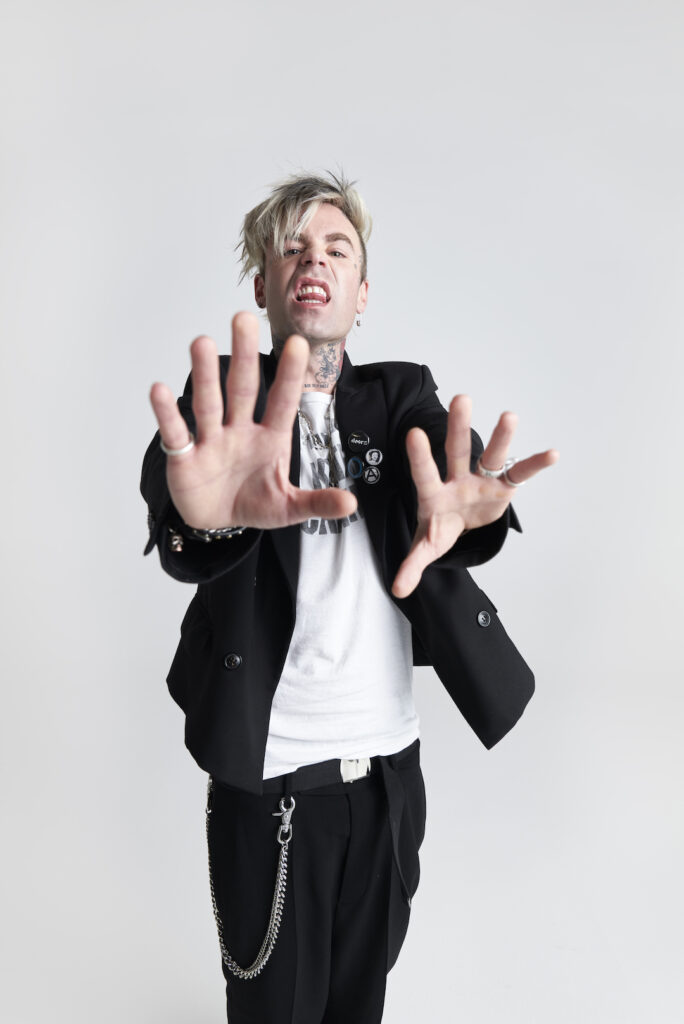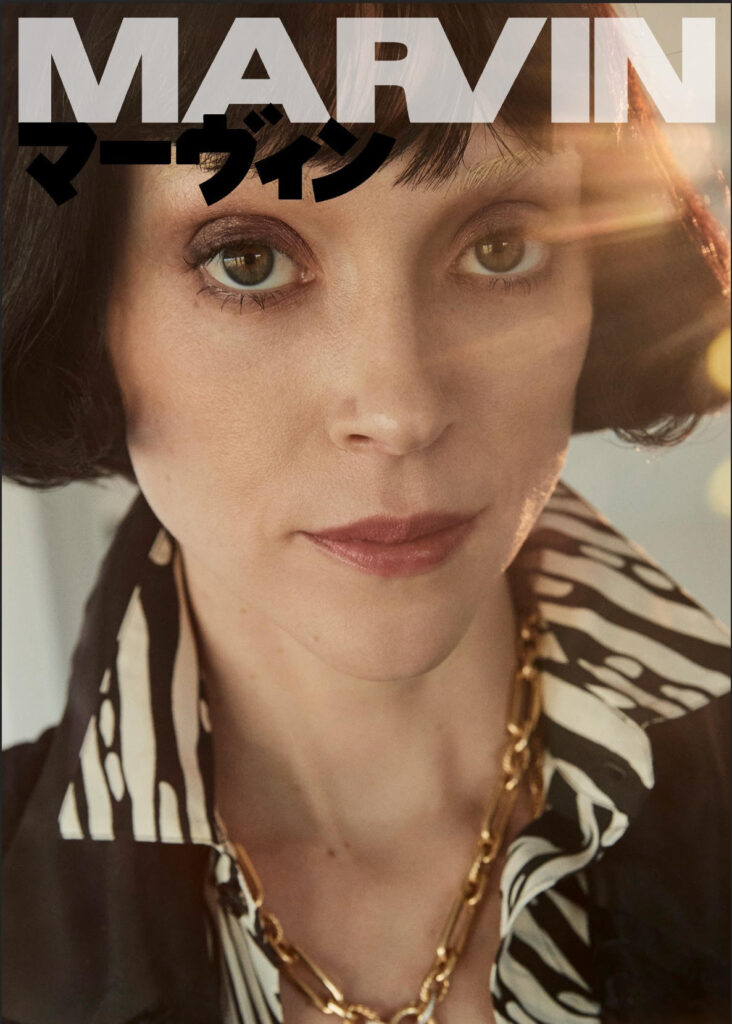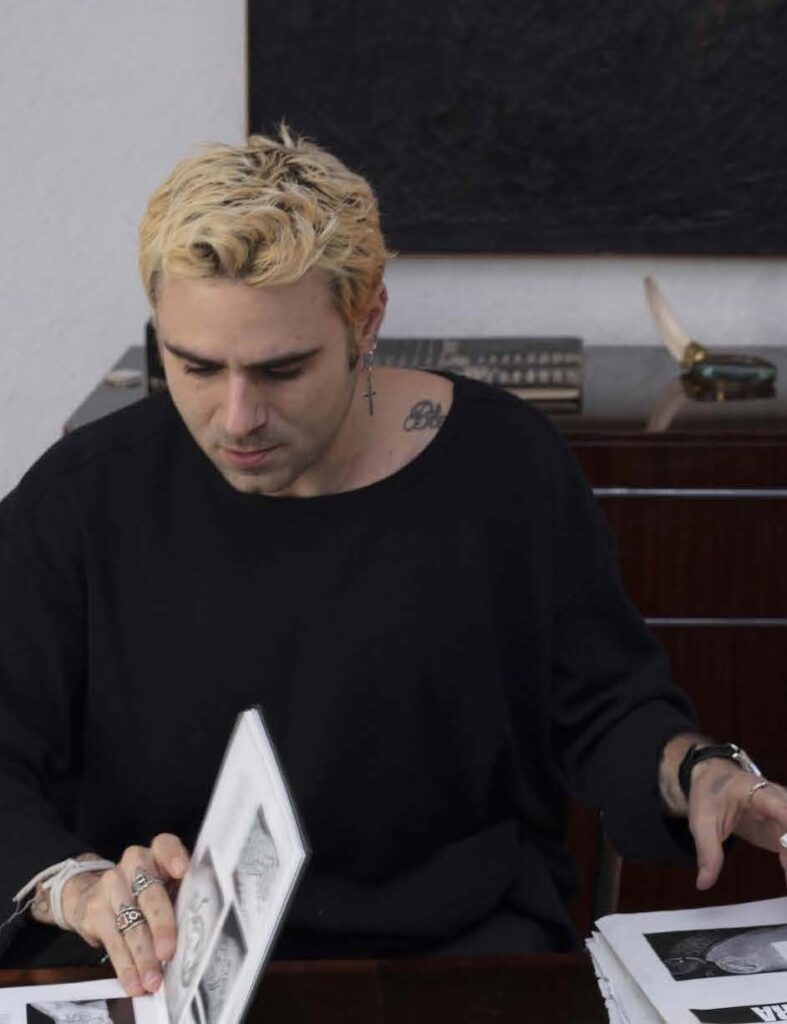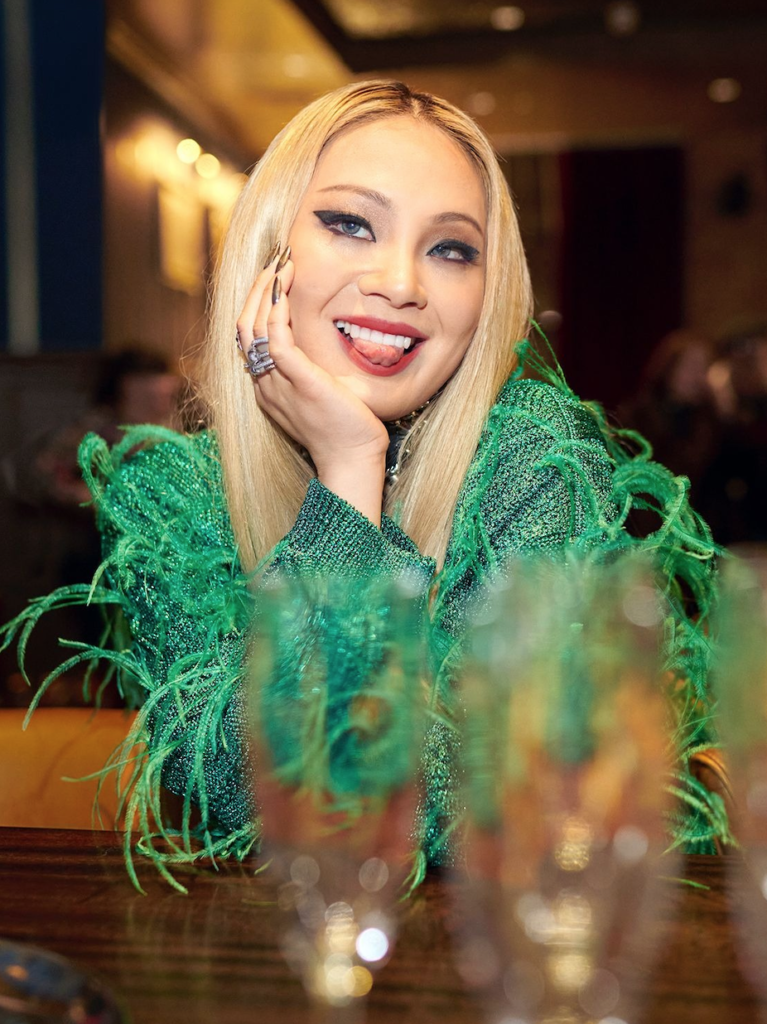Meet Marok: An Inside Look at Vulture Thrust Fest, Botswana’s Heaviest Festival
WORDS by JAMIE FULLERTON
PHOTOGRAPHY by MATJAŽ TANČIČ
A hulking man in a Motörhead t-shirt steps out of a hatchback in his hometown of Rakops: a village of a few thousand people in the Central District of Botswana. His name is Tshomarelo “Vulture Thrust” Mosaka and his cowboy boots kick up the Kalahari Desert dust as more cars pull up next to him with crunching tires adding to the swirl. Soon around 50 people in black cowboy hats, leather trousers and armbands made of nails, organize in crescent form around him. They call him Vulture and he’s the frontman of Overthrust, Botswana’s most prominent death metal band.
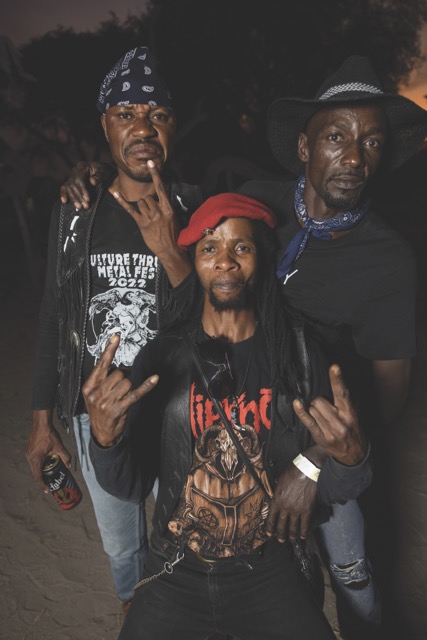
“We want to show that we are good people,” he explains. His sweaty fellow musicians nod enthusiastically. Members of screaming Swiss black metal band Gravpel rub white paint on their faces as Vulture continues. “We want to show people that we are the warriors of the world. We want to empower people against gender-based violence and empower people with disabilities. So, let’s march together!” The Vulture Thrust Metal Fest parade begins. Street vendors hawking trays of eggs also scramble for photos with the metal heads who strut in unison. A child fist bumps a man with waist-length dreads and a Slayer t-shirt. Friendly waves are rewarded with devil horn gestures as the leathered throng traverses the village. After years of forced shutdown, Botswana’s small but vibrant DIY heavy metal community is reunited. Many Botswanans still fear the subculture known locally as “Marok”—the Setswana language word for “rocker”—due to old-fashioned misconceptions about the metal and rock scene.
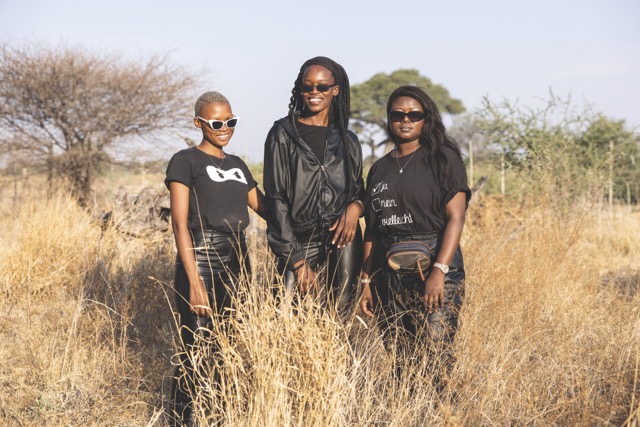
After the parade, Vulture heads to a campground on the outskirts of the village. “It was a ghost town here,” he recalls, noting that the camp’s post-pandemic reopening was delayed when wild elephants trashed the site but now a small stage sits behind gates adorned with animal skulls. This is the first Vulture Thrust Metal Fest. An event Vulture hopes will become the new home of the scene he’s been spearheading as a musician and organizer for over a decade. “This festival is so important. Some of our metal heads said they were giving up on the scene,” he says. He first planned to launch in 2020 but pandemic restrictions stymied that. “People told me: ‘this covid thing has killed my inner metal.’ They lost faith that there would ever be a show like this.”
Vulture organized online metal shows throughout to meet in person. He formed his band Overthrust in 2008, growing up listening to Botswana-based pioneers Nosey Road Band and Metal Orizon while his uncles played him cassettes by Metallica and Motörhead.
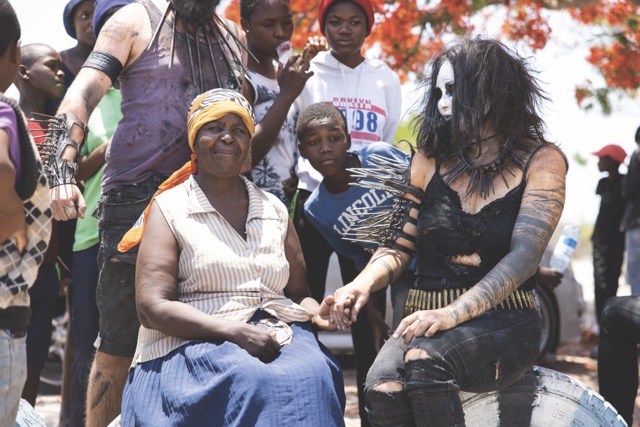
Vulture’s other festival, Overthrust Winter Metal Mania Fest, launched in the town of Ghanzi in 2010 and became the heart of Botswana’s then nascent metal scene. The popularity of home-grown bands such as Vitrified, Wrust, Amok and Skinflint slowly rose in tandem with the festival’s fame. But the formation of heavy metal culture in the southern African country—which has a population of just 2.4 million people—wasn’t widely welcomed. Overthrust lyrics include lines about corrupt clerics, myths and rituals. Covering the subject matter has often been misread as an endorsement of dark forces for many Botswanans, where around half the population is ardently Christian. “They said we were insulting God,” he explains.
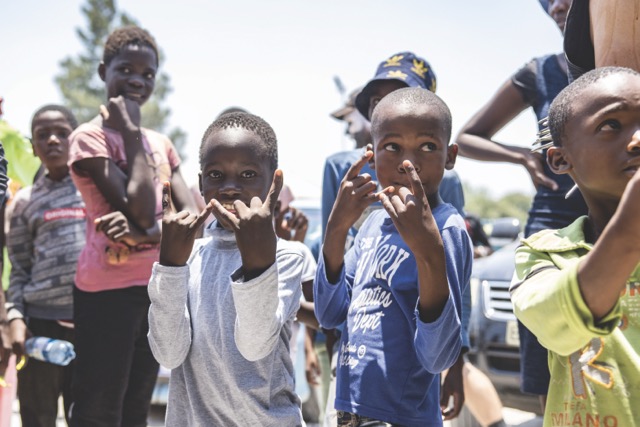
From Black Sabbath riling the conservative British public with witchy imagery in the 70s to Marilyn Manson becoming American Christian televangelism’s nemesis in the 90s, heavy rock has long been a source of pearl-clutching outrage and scapegoating. But even by the global standards of the genre, the criticism faced by the Botswana metal scene remains staunch. “A church organized a petition against one of our shows. Then they called other churches and organized nightlong prayers and church music to play opposite where the metal show was playing. They said they were removing demons from us.” Launching the fest in his hometown is partially an attempt to teach villagers that listeners and musicians of the genre are good citizens. He bolsters the message by choosing a charity for all of his events. This year’s festival is raising money for local children with disabilities.
As the sun goes down on Rakops, the music continues to cranks up. Shortly before a set by PMMA, a metal band from Gaborone with a Dinosaur Jr.-esque fuzz-rock edge, someone spots a black mamba snake by the stage. The lethally venomous reptile dies by a cowboy boot. There is no medical tent here.
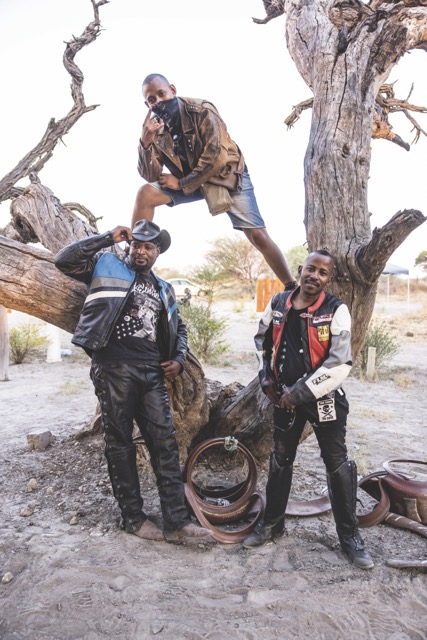
Ahead of a set by southeast Botswana metal band Humanitarian, fan Gabriella Francis talks of her relief at the return of metal events in her country. Born in Rakops and now studying electrical engineering, she wore an Overthrust t-shirt to the village parade.“It’s good to bring the event out here,” she says. “Most people in Botswana are still not used to rockers but this time we’re going to interact with people.” Francis says that even now, more than a decade after Vulture’s first Botswana metal festival, she’s constantly criticized on social media for belonging to the scene. Considering that PMMA sing a song about protecting Syrian war victims, and Humanitarian mainly write about human rights, this seems particularly unjust. “Maybe it’s because I’m always wearing black,” she opines. “I don’t respond, I just take it as it is.”
The festival is a success both musically and culturally. At the parade it seems like the entire village has turned out. The march ends at Rakops’ kgotla – a covered public meeting area where community decisions are made and endorsed by the elder village chief along with a suited government representative. Vulture, an ex-cop, wants heavy metal to be accepted by this kind of authority and wants metal bands to be a positive showcase for Botswanan music, rather than just something mimicking western influence. Vulture says that Motörhead are a huge influence on Marok attire: cowboy hat and boots, skintight trousers, booze bottle in hand—but it also authentically reflects the local agrarian society. The country has a cattle population higher than that of its human citizens at 2.5 million. “We have a strong cattle culture,” he explains, noting that most Rakops families own livestock. “We used to design leather outfits ourselves and when we slaughtered a calf, we’d process the leather.” This year Gravpel, the only non-African band at the festival, are given the honor of slaughtering a goat for the barbecue.
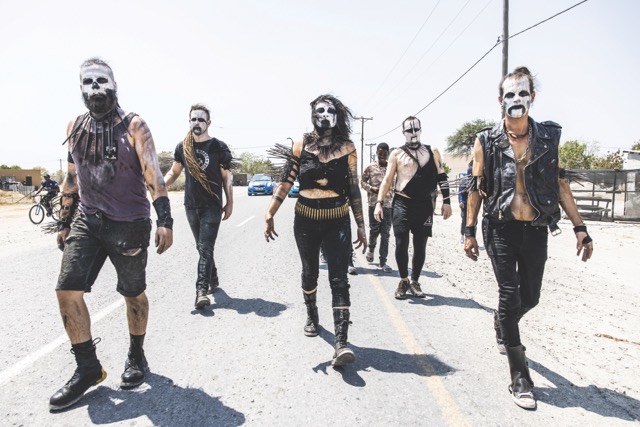
Four-piece Bankrupt Souls, a supergroup of sorts featuring former members of Metal Orizon and Wrust, are arguably the best act at the festival. Taking shade under a tree before their set, frontman Dumisani Matiha, speaks of the importance of pushing beyond foreign influences. He mentions their song “Zwandiwana”, with its chorus derived from a folk song from Botswana’s Kalanga culture. The lyrics cover a mother’s mixed feelings about her daughter getting married. “We tried to emulate the traditional rhythms of the drums,” says Matiha. “We took that rhythm into the guitars.” He widens his mouth and makes a guttural “gha-gha-gha-gha” to vocalize his point. “We mix metal and what we have here. When you listen to us you’ll realize, ‘this isn’t American, this is from Africa.’”
Overthrust play a set of gloomy death metal in front of a dustbowl mosh pit, with Vulture protected from the cyclones of kicked-up dirt by his huge leather coat. At 4am Gravpel—in full horror film warpaint and rusty neck-spikes—end the festival with a set of anarchist, anti-fascist scream rock. Later, Vulture sleeps in a truck.
The Vulture Thrust Metal Fest is a triumph but a costly one. With tickets priced at an accessible 100 pula ($7.50), the festival does operate at a loss. Like other local musicians all over the world, Vulture works a day job, maintaining the metal scene through force of will in his spare time. “It’s a huge burden,” he says. “I’m slowly starting to get tired. Life is costly these days.” But Vulture, who works as a security guard and has two children, knows that without his efforts this small scene would quickly shrink. There’s little time for rest: the next Winter Mania Metal Fest is set for May 2023.
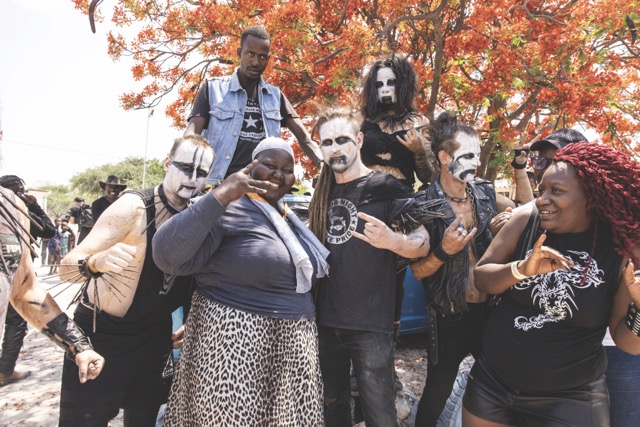
“There’s nothing coming in from this music,” says Kebadiretse Diako, frontman of Vitrified. “You have to have extraordinary drive. You should be insane. But you know The Ramones? We read that their first audience was a bartender and a dog. We’d be here even if it was just other bands watching us. It’s about passion.”
@tshomarelomosaka
